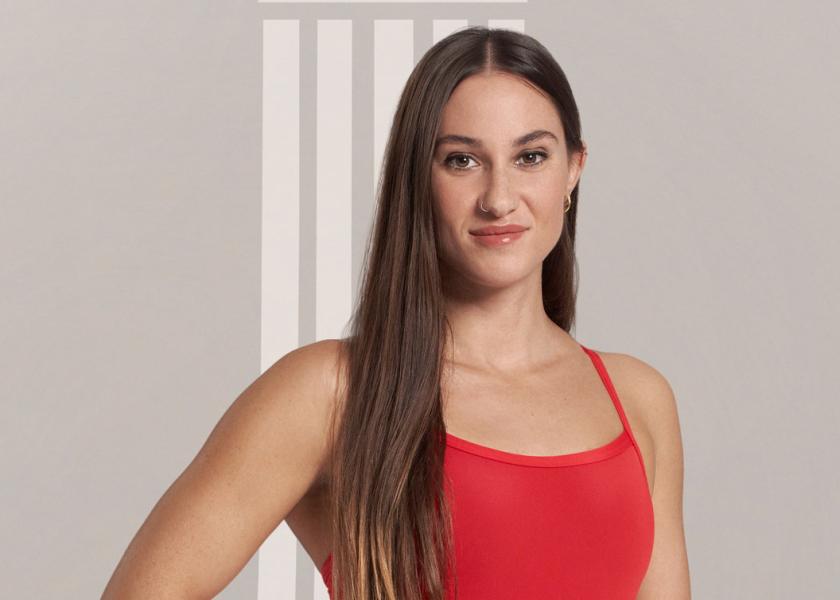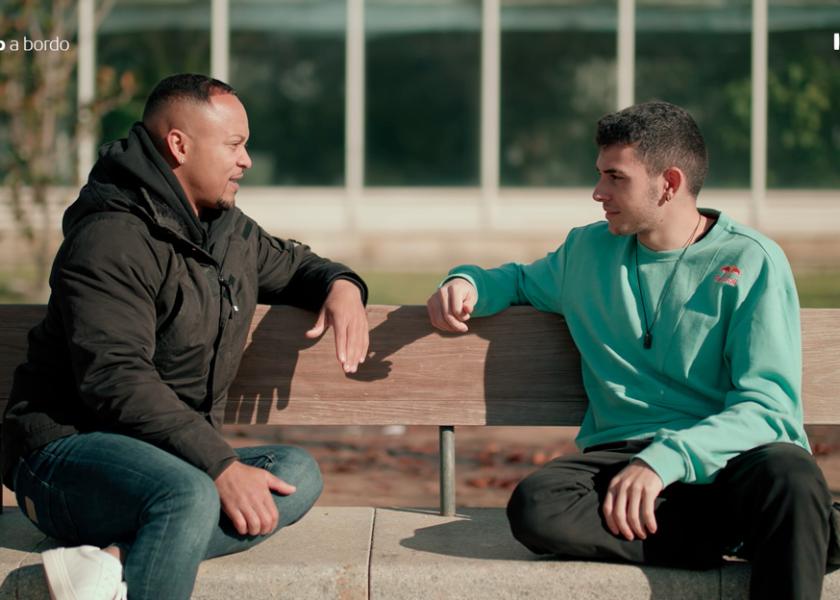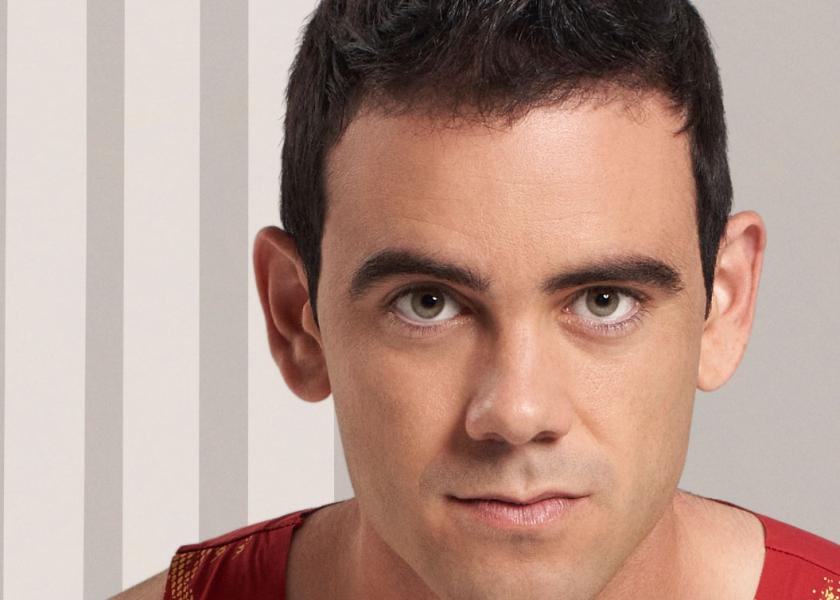Ray Zapata
The flight of the phoenix
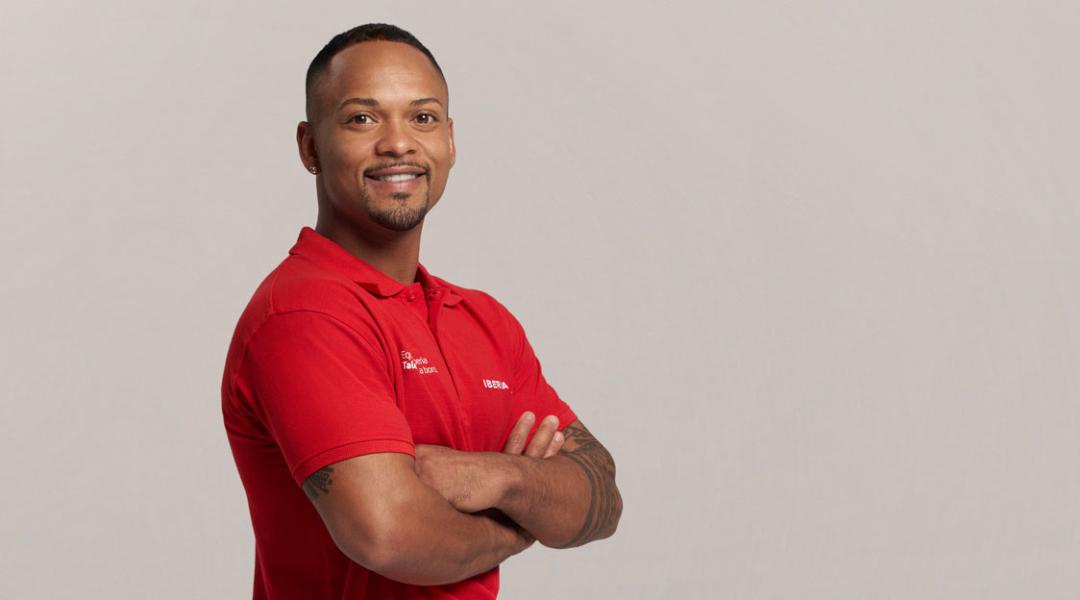
At the Tokyo Games, Ray Zapata won the silver medal after a spectacular floor exercise. When the spotlights went out, the gymnast admits to feeling “burnt out.” To the point that he even considered quitting. After a long break, he came back willing to complete another cycle. Now, less than a year away from the Paris Games, the only thing on this Dominican-Spaniard’s mind is flying high again, why not?
Ray Zapata’s daughter wasn’t born with a silver spoon in her mouth, as the saying goes, but she did come with a silver medal around her neck. Her name, Olympia, was a premonition. “I wanted to dedicate a medal to her, so she was the motivation to get up every day to win it,” remembers Ray Zapata (Santo Domingo, 1993). Last August, fatherhood knocked on this gymnast’s door again. We don’t know if Kayro also comes with a medal, but, for now, according to this proud father, he’s helping him prepare for Paris: “We’ve been really lucky with Kayro because he’s a good sleeper and not a cry-baby.” Ray’s season, and that of the whole Spanish national team, hasn’t been easy. Last March, while travelling to Portugal for a championship, they were in a serious traffic accident. Joel Plata was the worst off and had to have his broken femur operated on. Despite this setback, which slowed down training, the Spanish national team managed to qualify for the Games at the recent World Artistic Gymnastics Championships in Antwerp. “We’ve achieved the hardest part, qualifying, so now we just need to put in the work with ambition, desire and enthusiasm,” Ray celebrates.
What’s your take on the World Championships in Antwerp, where the Spanish national team qualified for the upcoming Games?
As a team, we were quite chilled because we knew we’d qualify. Before, we used to feel more doubtful, so that’s a win. Our goal was to reach the team final, but we were out by four tenths of a second. This year, we’ve had a few setbacks: the accident in Portugal or badly timed injuries. Personally, my father almost died. All these details can affect your position in a competition.
Did the accident you had on the way to Portugal affect your training a lot?
Yes, and not just physically. Psychologically, it also makes you reconsider things; experiencing such a dangerous situation changes your perspective. I already used to enjoy what I do every day, but now even more so. However, sport isn’t the be all and end all. If you don’t train one day because you’re tired, it doesn’t matter; that doesn’t make you a better or worse athlete. If a training session isn’t going to be productive, instead of being upset at the gym and overthinking, it’s better to spend the day with your family. We need to give ourselves some slack and not be so tough on ourselves.
“If I win another silver, I won’t complain, but I’m working towards winning the gold. I have the potential and the drive. Let’s do it!”
In Antwerp, Simon Biles returned to the World Championships. And she came back with a bang: four golds and one silver. In your experience, how important is mental health in sport?
Mental health is essential to achieve success in sport. I can be quite moody and, sometimes, I get caught up in negative thoughts that my therapist pulls apart with a couple of phrases. The role of psychologists is really important when working on self-confidence. And not only in terms of sport, they also help with personal situations because both planes need to be aligned.
After the World Championships, you need to set your sights on the next big goal: Paris. Which are your expectations?
Being among the best in the world again. If I already made it once, why not again? Obviously, many stars need to align. The first is being as healthy as possible. Then there is performing great exercises, both to be in the final and to fight for medals. If I win another silver, I won’t complain, but I’m working towards winning the gold. I have the potential and the drive. Let’s do it!
Your silver in Tokyo broke a streak of 13 years without medals for Spanish gymnastics. Will we have to wait as long again?
We have to be optimistic because Spanish gymnastics is growing. We have tons of talented young gymnasts who are working hard to get to Los Ángeles. I doubt we’ll take another 13 years to win a medal. In fact, I want to win one in Paris. We’ve achieved the hardest part, qualifying, so now we just need to put in the work with ambition, desire, and enthusiasm.
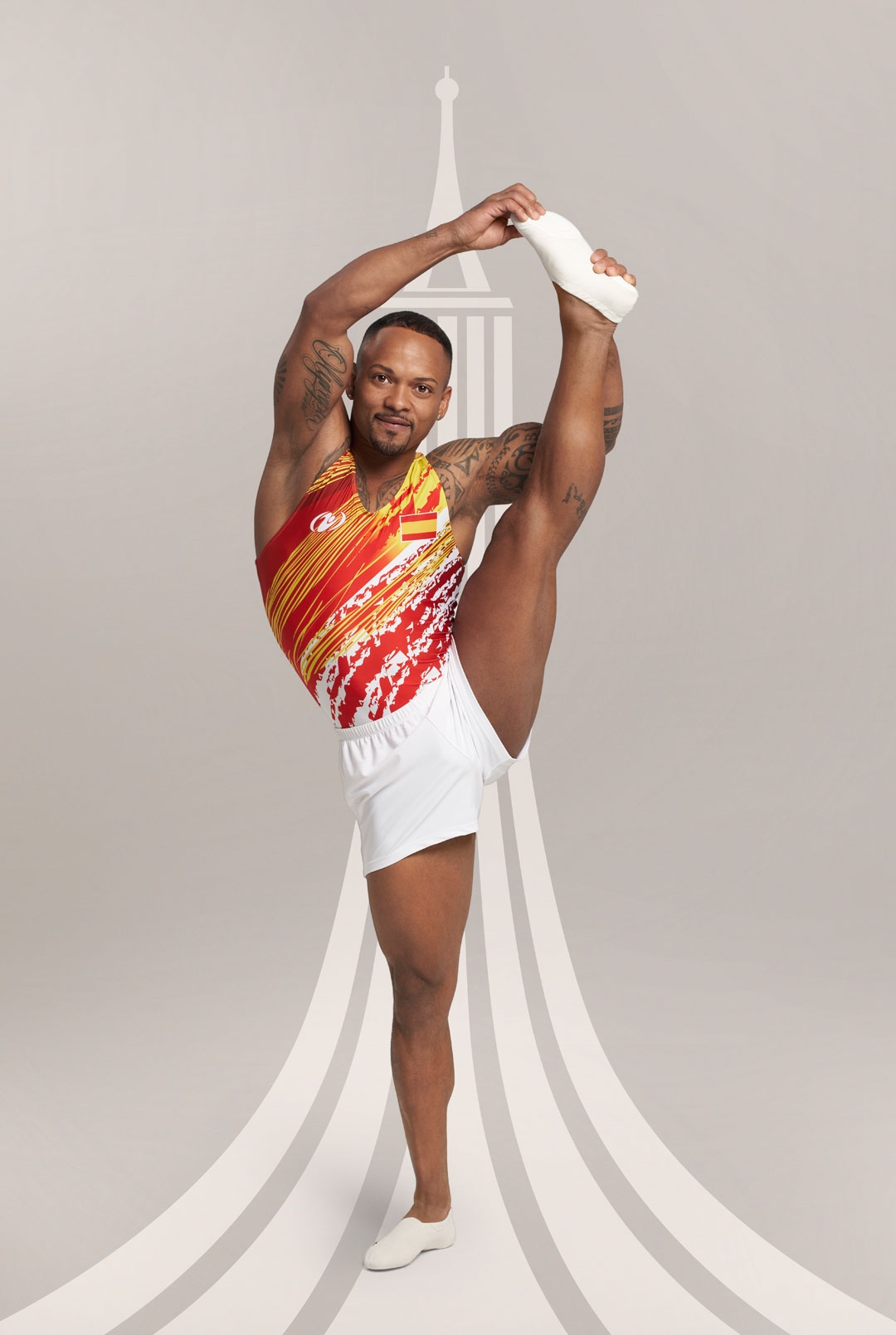
His daughter Olympia and his newborn son Kayro are the driving force behind gymnast Ray Zapata.
Do you feel like the leader of the Spanish team, because of your track record and experience?
I don’t feel like the leader, but I do like to advise and encourage my team mates to become more ambitious, to not only think about taking part. We’ve all changed our mindset. We need to be fearless. Although we didn’t make the team final in Antwerp, we need to keep believing that we can fight for the top positions.
Whatever happens in Paris, are you considering staying on for four more years and getting to Los Ángeles?
To be honest, I almost quit after Tokyo. I ended up quite burnt out. But then I asked myself: “Where do you think you’re going, mate? Why wouldn’t you carry on?” I was physically healthy and mentally strong, it’s also true that I took a well-deserved break after Tokyo. Over the last few years, I’ve proven that, if I can keep injuries at bay, I have the skills. We’ll see what happens after Paris, but why not carry on for one more cycle and reach Los Ángeles? There also might be a change in regulations that could benefit me. I think I’ll stay!
“Talent is like a diamond; you need to polish it through hard work for it to shine”
You started out late in gymnastics, to the point where many doubted you. How did you make up for lost time to catch up with the best?
I had to work really hard... I was lacking technical skills, but I also had something that other gymnasts where missing: I jumped a lot higher; I was also a quick learner and eager to work hard. Víctor Cano and Gervasio Deferr saw those qualities and convinced me that I could do it. They knew something that others didn’t and, since I started at the High-Performance Centre, they told me that I’d win a medal in a Games.
Throughout your career, which has played a bigger role: talent or hard work?
Talent is important, but hard work even more so. Talent is like a diamond; you need to polish it with hard work for it to shine. I’m talented, but I’ve had to polish it with a lot of hard work to get to where I am. And even though I’ve reached big goals, I continue working daily to carry on shining bright.
There’s always a connection that changes our lives. In your case, what was it?
I’d highlight two, on the one hand, my connection with Víctor Cano and Gervasio Deferr, who helped me get into the High-Performance Centre in Barcelona, where I’d been previously turned away. In terms of sport, I am who I am thanks to them. And, on the other hand, my connection with my daughter Olympia. I wanted to dedicate a medal to her, so she was the motivation to get up every day to win it.
